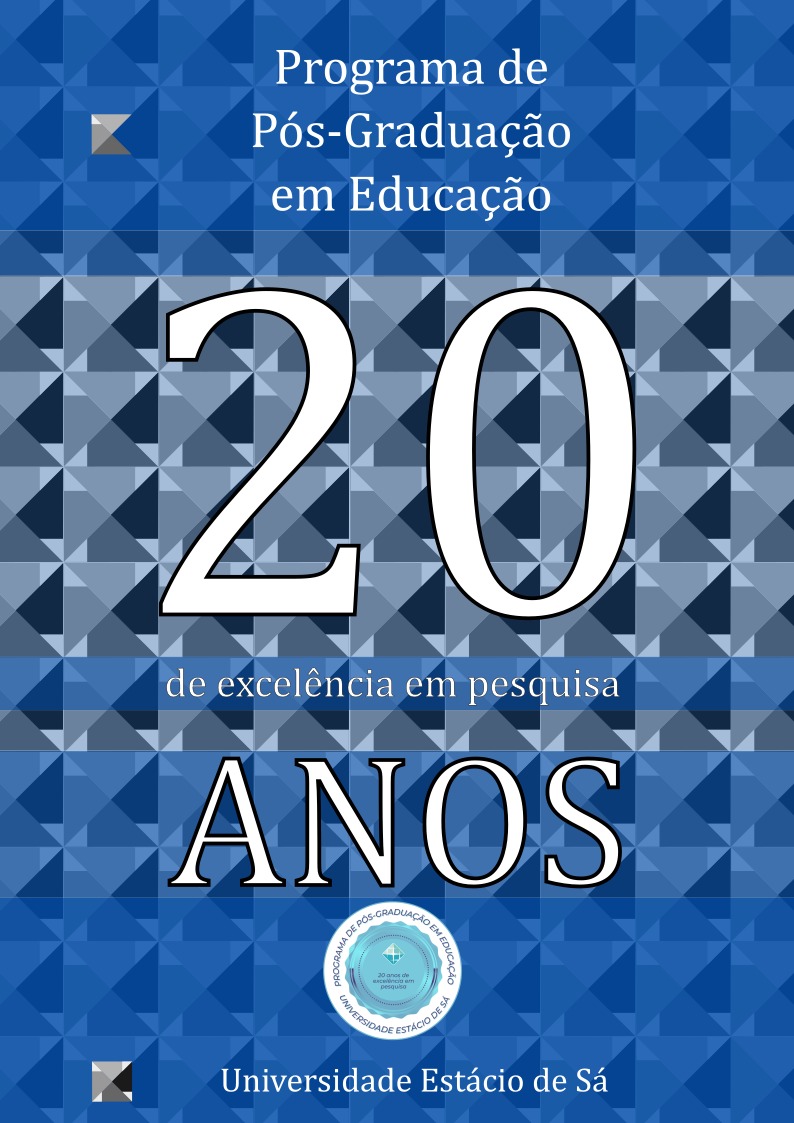Shouts from the deaf community – social identity in question
DOI:
https://doi.org/10.5935/2238-1279.20230014Keywords:
Deaf culture, Deaf identity, Theory of argumentation, Rhetoric, Social PsychologyAbstract
The article examines the discourses of deaf authors and hearing authors identified with the deaf community who seek to define the characteristics that forge the deaf identity and universe. The deaf identity has historically been constituted on the basis of pathologization, conditioning the deaf to be recognized as unable to perform activities common to listeners, because they do not communicate orally. For this, we present the rhetoric as a method of discourse analysis, based on the authors Chaïm Perelman and Lucie Olbrechts-Tyteca who formulated the Theory of Argumentation in the New Rhetoric movement. The examination of argumentative schemas exposes what is admitted or not by groups. As far as identity constitution is concerned, the reasoning is largely based on relations of coexistence. In short, the rhetorical analysis allows us to state that, regardless of integrating a linguistic minority, the deaf discourses present the diversity of the deaf community.
References
BRASIL. [Constituição (1988)]. Constituição da República Federativa do Brasil. Brasília, DF: Presidência da República, 1988. Diário Oficial da União: 5 out. 1988. Disponível em: http://www.planalto.gov.br/ccivil_03/constituicao/constituicao.htm. Acesso em: 17 out. 2021.
BRASIL. Lei n.º 10.436, de 24 de abril de 2002. Dispõe sobre a Língua Brasileira de Sinais-LIBRAS. Diário Oficial da República Federativa do Brasil: Brasília, DF, seção 1, p. 23, 25 abr. 2002. Disponível em: http://www.planalto.gov.br/ccivil_03/leis/2002/l10436.htm. Acesso em: 15 out. 2021.
BUENO, José Geraldo S. Surdez, linguagem e cultura. Cadernos Cedes, Campinas-SP, v. 19, n. 46, p. 41-54, set. 1998. Disponível em: https://www.scielo.br/j/ccedes/a/sDmVcR8dFLdx8cbhFkqJFCt/abstract/?lang=pt. Acesso em: 29 mar. 2023.
DESCHAMPS, Jean-Claude; MOLINER, Pascal. A identidade em psicologia social: dos processos identitários às representações sociais. Tradução: Lúcia M. Endlich Orth. Petrópolis (RJ): Vozes, 2009.
GOLDFELD, Márcia. A criança surda: linguagem e cognição numa perspectiva sociointeracionista. São Paulo: Plexus Editora, 2002.
MAZZOTTI, Tarso Bonilha. Falar para ensinar e persuadir a aprender. Educação & Linguagem, v. 15, n. 25, p. 155-179, jan.-jun. 2012. Disponível em: https://www.metodista.br/revistas/revistas-ims/index.php/EL/article/view/3352. Acesso em: 23 out. 2022.
MAZZOTTI, Tarso Bonilha; ALVES-MAZZOTTI, Alda Judith. Análise retórica na pesquisa em representação social. In: ALVES-MAZZOTTI, Alda J.; FUMES, Neiza L. F.; AGUIAR, Wanda M. J. (org.). Estudos sobre a atividade docente: aspectos teóricos e metodológicos em questão. São Paulo/Maceió: EDUC/EdUFAL, 2010. p. 71-88.
MAZZOTTI, Tarso B.; OLIVEIRA, José Renato. A retórica das teorias pedagógicas: uma introdução ao estudo da argumentação. 22ª. Reunião Anual da ANPEd GT – Filosofia da Educação, 1999.
MOURA, Maria Cecília. O surdo: caminhos para uma nova identidade. Rio de Janeiro: Revinter/Fapesp, 2000.
PERELMAN, Chaïm; OLBRECHTS-TYTECA, Lucie. Tratado da Argumentação. A nova retórica. Tradução: Maria Ermantina Galvão G. Pereira. 2ª ed. São Paulo: Martins Fontes, 2005.
PERLIN, Gladis. Identidades Surdas. In: SKLIAR, Carlos (org.). A surdez: um olhar sobre as diferenças. 8ª. ed. Porto Alegre: Mediação, 2016. p. 51-73.
SKLIAR, Carlos. Um olhar sobre o nosso olhar acerca da surdez e das diferenças. Apresentação. In: SKLIAR, Carlos (org.). A surdez: um olhar sobre as diferenças. 8ª ed. Porto Alegre: Mediação, 2016. p. 5-32.
STROBEL, Karin Lilian. História dos Surdos: representações ‘mascaradas’ das identidades surdas. In: QUADROS, Ronice Muller; PERLIN, Gladis (org.). Estudos Surdos II. Petrópolis-RJ: Editora Arara Azul, 2007. p. 18-37.
Downloads
Published
Issue
Section
License
Ao submeter um artigo para publicação na Revista Educação e Cultura Contemporânea, o (s) autor(es) concordam com os seguintes termos:
I. O(s) autor(es) e o(s) eventual(is) coautor(es) conhecem e declaram concordar com as políticas editoriais da revista para a publicação de artigos e com os termos e diretrizes a seguir;
II. Os autores garantem que o trabalho não foi publicado anteriormente em meio eletrônico ou impresso, tampouco encaminhado para publicação em língua portuguesa em outros periódicos. Também asseguram que todos os autores participaram na elaboração intelectual de seu conteúdo;
III. Os artigos publicados representam, exclusivamente, a expressão do ponto de vista de seus autores e não a posição da Revista Educação e Cultura Contemporânea ou do Programa de Pós-Graduação em Educação da Universidade Estácio de Sá;
IV. É responsabilidade do(s) autor(es) assegurar que o manuscrito não contenha elementos que revelem sua identidade, garantindo a revisão cega durante o processo de avaliação por pares. Para isso, devem ser adotadas as seguintes medidas: remover nomes de autores, afiliações institucionais e quaisquer informações pessoais do corpo do texto e das notas de rodapé; substituir referências à própria produção por termos neutros, como “Autor(a)” ou “Autor(a), ano”, evitando citações que permitam a identificação; nomear o arquivo de submissão de forma neutra, sem mencionar o nome do(s) autor(es); e excluir metadados do documento que possam identificar a autoria (ex.: propriedades do arquivo em editores de texto).
V. O responsável pela submissão deve certificar-se do preenchimento completo e correto das informações de todos os colaboradores, conforme solicitado no sistema de submissão, incluindo: nome completo, filiação institucional atualizada, e-mail, link para o currículo Lattes (para participantes brasileiros), ORCID e minicurrículo;
VI. O(s) autor(es) comprometem-se a submeter o manuscrito utilizando exclusivamente o template oficial disponibilizado pela Revista Educação e Cultura Contemporânea (REEDUC), assegurando o cumprimento integral das normas de formatação exigidas. Isso inclui a padronização de margens, fonte, espaçamento, estilo de citações e referências bibliográficas, conforme descrito nas Diretrizes para Autores. Submissões fora do padrão estabelecido poderão ser rejeitadas ou devolvidas para ajustes antes do encaminhamento à avaliação por pares.
VII. Caso tenha sido utilizado algum recurso de inteligência artificial (IA) durante a elaboração do manuscrito, o(s) autor(es) deve(m) declarar esse uso, seguindo as orientações do template e da seção "Declaração de Direito Autoral", disponíveis nesta página.





